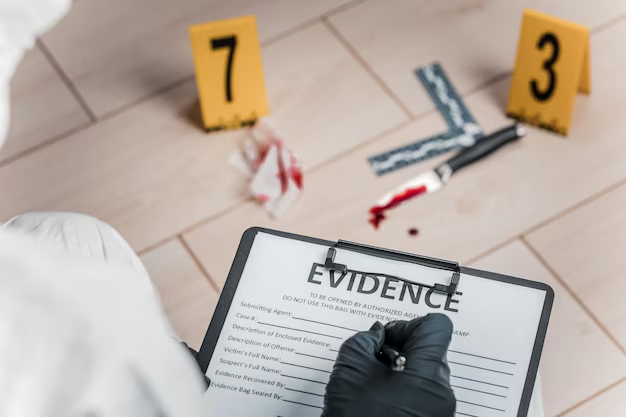When an individual is accused of a crime, their defense lawyer plays a crucial role in challenging the charges and protecting their rights. In criminal trials, defense attorneys utilize various strategies to either prove the innocence of the defendant or to reduce the severity of the charges or sentencing. These defenses are not only aimed at creating reasonable doubt in the minds of jurors but also at ensuring that the legal process is fair and just.
This article explores the common defenses used by crime lawyers in criminal trials, explains how these defenses work, and examines their impact on the outcome of criminal cases.
Key Takeaway
- Criminal defenses aim to either prove innocence, justify the actions of the defendant, or highlight weaknesses in the prosecution’s case.
- Self-defense, insanity, and alibi are among the most common defenses, but many others, including lack of evidence and mistaken identity, play pivotal roles in criminal trials.
- The ultimate goal of a criminal defense lawyer is to secure the best possible outcome for the defendant, whether through a complete acquittal, reduced charges, or a favorable plea agreement.
Also Read : Overview Of The Civil Law Legal System
Innocence of the Defendant
The most straightforward defense in criminal law is asserting that the defendant is innocent of the crime they are charged with. The burden of proof in criminal trials lies with the prosecution, meaning the defendant doesn’t need to prove their innocence but rather the prosecution must prove the defendant’s guilt beyond a reasonable doubt.
- The defense will present evidence, alibis, or witnesses that demonstrate the defendant was not at the scene of the crime or involved in the alleged act.
- They may challenge the credibility of the prosecution’s evidence and witnesses, pointing out inconsistencies or contradictions.
Example: If someone is accused of theft but can provide evidence that they were elsewhere at the time of the crime (e.g., a receipt, surveillance footage), their lawyer will argue that they are not guilty.
Also Read : Why Access to Justice Matters: Legal Equity in Modern Society?
Self-Defense
Self-defense is one of the most common defenses in violent crime cases, especially for charges like assault or homicide. The defendant asserts that they committed the act in order to protect themselves from immediate harm or death.
- The defense must show that the defendant was facing an imminent threat of harm and that the force used to defend themselves was reasonable under the circumstances.
- For example, in a fight, if the defendant is struck first, they may have the right to defend themselves with reasonable force.
Example: In a case of assault, the defendant may argue they only struck the victim because they were in immediate danger and had no other option to avoid harm.
Insanity Defense

The insanity defense argues that the defendant should not be held criminally responsible for their actions due to a severe mental illness or disorder at the time of the crime. This is a highly complex and often controversial defense.
- The defense must establish that the defendant lacked the mental capacity to understand the nature of their actions or to distinguish between right and wrong at the time of the crime.
- Medical professionals, such as psychiatrists, are often called to testify about the defendant’s mental state.
Example: A defendant suffering from schizophrenia who commits a crime may be found not guilty by reason of insanity if it is proven that the mental illness prevented them from understanding their actions.
Also Read : How Do You Choose The Right Law Internship For Your Career Goals?
crime lawyer of Alibi Defense
An alibi defense is used when the defendant claims that they were not present at the scene of the crime at the time it occurred. This defense typically involves presenting evidence or witnesses who can verify the defendant’s whereabouts.
- The defense will present evidence, such as surveillance footage, phone records, or eyewitnesses, to demonstrate that the defendant was somewhere else at the time of the crime.
- An alibi defense works by casting doubt on the prosecution’s claim that the defendant was present and involved.
Example: If a person is accused of a robbery but has a friend who can testify that they were at a movie theater across town at the time of the robbery, the lawyer may present this alibi to discredit the prosecution’s case.
Also Read : Civil Rights Advocacy: Fighting Injustice And Promoting Social Change
Entrapment
Entrapment occurs when a law enforcement officer induces a person to commit a crime that they would not have otherwise committed. This defense is often used in cases involving undercover officers or sting operations.
- The defense will argue that the police or another government agent encouraged or coerced the defendant into committing the crime, despite the defendant having no prior intention to commit such a crime.
- The key here is proving that the defendant was not predisposed to committing the offense and that the government played a major role in convincing them to do so.
Example: A defendant accused of selling drugs may argue that an undercover officer pushed them into selling by making repeated offers or by suggesting that it was easy money, even though the defendant had no prior intent to break the law.
Coercion or Duress

In cases where a defendant commits a crime because they were forced to do so under threat of serious harm or death, the duress defense may be invoked. This defense is commonly used in cases of robbery, assault, or other violent crimes.
- The defendant must prove that they were under immediate threat of harm or death and that their actions were necessary to avoid this harm.
- The defense is typically not available for crimes that involve murder (depending on jurisdiction), as it’s difficult to justify taking someone’s life even under duress.
Example: A defendant accused of robbing a store may argue they were forced to do so at gunpoint by another individual who threatened to kill them if they didn’t comply.
Also Read : What Are The Key Principles Of Commercial Law In Business Transactions?
Lack of Evidence

A lack of evidence defense focuses on highlighting weaknesses or gaps in the prosecution’s case. The defense will argue that the evidence presented is insufficient to prove the defendant’s guilt beyond a reasonable doubt.
- The defense will challenge the validity of evidence, question witness credibility, or point out inconsistencies in the prosecution’s case.
- In some cases, the defense may argue that critical evidence was not collected or preserved properly by law enforcement.
Example: In a theft case, if the prosecution cannot present fingerprint evidence, surveillance footage, or eyewitness testimony linking the defendant to the crime, the defense can argue that there is not enough evidence to convict.
Mistaken Identity
Mistaken identity is a defense in which the defendant argues that they were wrongly identified as the perpetrator of the crime. This is a common defense in cases of robbery, assault, or other crimes that involve eyewitness testimony.
- The defense will challenge the reliability of the eyewitnesses and suggest that the defendant’s appearance or circumstances led to an inaccurate identification.
- For example, the defense might argue that the victim was unable to clearly see the perpetrator or was influenced by stress or poor lighting.
Example: A person accused of a robbery might argue that the eyewitnesses mistakenly identified them, and that they were not involved in the crime.
Consent
In cases involving charges of assault, battery, or sexual assault, a consent defense may be used to argue that the alleged victim agreed to the act. This is particularly common in cases of sexual assault or domestic violence.
- The defense may argue that the victim willingly participated in the act and therefore, the defendant cannot be guilty of the crime.
- However, this defense can be contentious, as consent may not always be clearly established, especially in cases involving power imbalances or intoxication.
Example: In a sexual assault case, the defendant may argue that the alleged victim consented to the sexual activity, thereby negating the element of coercion or lack of consent required for a conviction.
Statute of Limitations
In some criminal cases, a statute of limitations defense may be raised, which argues that the prosecution is time-barred from bringing charges against the defendant because the time period for prosecuting the crime has expired.
- The defense will show that the crime was committed beyond the legal time frame allowed for prosecution, and as a result, the case must be dismissed.
- Different crimes have different time limits, ranging from a few years for minor offenses to decades for more serious crimes.
Example: If someone is charged with a crime that happened 10 years ago, but the statute of limitations has passed, the defense attorney may argue that the prosecution cannot legally pursue the case.
Also Read : Criminal Defense Attorney Strategies: Building A Strong Defense For Your Case
Conclusion
Defending a criminal case requires strategic thinking and a deep understanding of the law. Crime
lawyers have various defenses at their disposal to protect their clients, from asserting the defendant’s innocence to challenging the evidence or arguing that the crime was committed under duress. The role of a criminal defense lawyer is to ensure that every person, regardless of the charges against them, receives a fair trial.
FAQs
What is self-defense in criminal law?
Self-defense is a legal defense where the defendant argues that they used force to protect themselves from imminent harm. The force used must be proportional to the threat faced.
Can someone claim self-defense if they use excessive force?
No, the use of excessive force is generally not acceptable in self-defense claims. The response must be reasonable and proportionate to the threat. If the defendant escalates the situation, the defense may not apply.
What is the insanity defense, and how does it work?
The insanity defense argues that the defendant should not be held criminally responsible for their actions because they were suffering from a mental illness at the time of the crime. Expert testimony from psychologists or psychiatrists is often required.
Can a defendant withdraw a guilty plea?
In some cases, a defendant can withdraw a guilty plea, but it typically requires showing that the plea was made under duress, without understanding the consequences, or due to ineffective legal counsel. This can be challenging to prove.
What is a plea bargain, and is it a good strategy?
A plea bargain is an agreement in which the defendant pleads guilty to a lesser charge or receives a reduced sentence in exchange for avoiding trial. It can be a good strategy if the evidence against the defendant is strong and the goal is to minimize punishment.
What happens if police violate a defendant’s rights during an arrest?
If police violate a defendant’s rights, such as failing to read them their Miranda rights or conducting an illegal search, the evidence obtained may be inadmissible in court. This could lead to a case being dismissed or charges being reduced.
How does the burden of proof work in criminal trials?
In criminal trials, the burden of proof lies with the prosecution. They must prove the defendant’s guilt “beyond a reasonable doubt.” The defendant does not need to prove their innocence but can challenge the prosecution’s evidence to create doubt.





